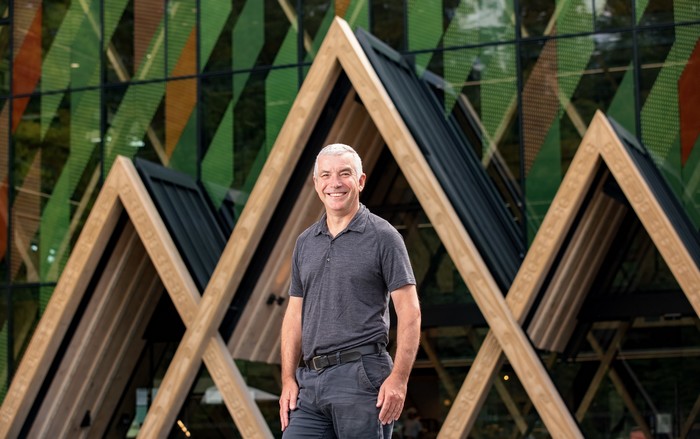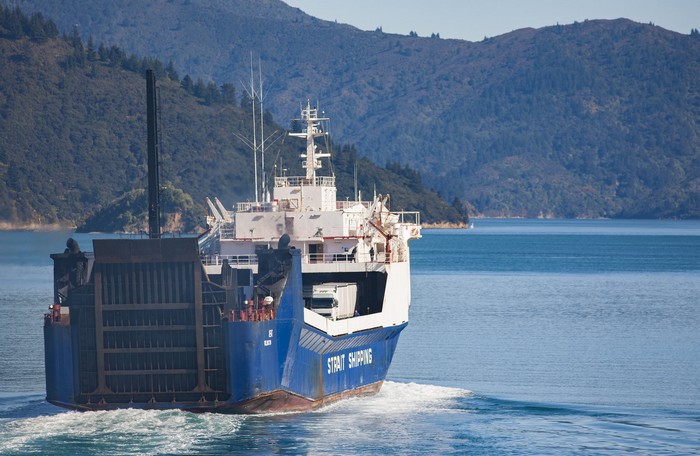Our one shot to move from fossil fuels

Dr Paul Bennett is Chair of the world’s foremost bioenergy research collaboration the International Energy Agency Bioenergy group. He is also on the NZ Bioenergy Association Board, and a trustee at the National Energy Research Institute. Paul has spent 15 years researching biofuels, preceded by 20 years working on automotive fuels at BP. Now he leads Scion’s portfolio on integrated bioenergy.
If you ask Paul why he chose to come to New Zealand from the United Kingdom, his answer is straight forward. When he looked at New Zealand, he saw a small country that punches above its weight in international influence and is well suited to adopting biofuels and bioenergy on a national scale. Here are his thoughts on New Zealand’s opportunity with biofuels and bioenergy.
“We’ll only get one opportunity to choose the new systems and technology that move us away from fossil fuels. Once we set off down our chosen path, there’s no getting that time or investment back.
“The Government is beginning to chart that path now. We know it won’t be straight forward. The Climate Change Commission’s (CCC) draft report says that New Zealand’s shift away from fossil fuels won’t be resolved with a single silver bullet. Instead we will have to employ a network of solutions.
“The Government has announced that bioenergy will be an important part of the equation. We already have the technology to begin transitioning some of New Zealand’s big greenhouse gas emitting sectors – transport and energy for industrial processes – away from fossil fuels.
“Some industrial energy users (manufacturing, production and construction) have already begun switching to low-carbon fuels by installing new biomass boilers that produce energy from renewable resources like forestry residues. However, we can save industry from replacing costly infrastructure.
“There are solid biofuel options available now that can directly replace coal. This solid biofuel can be used in existing coal boilers, and it is made with biomass from our local, sustainable forestry sector (see “‘Bio-coal’ for better burning bioenergy”, in this issue of Scion Connections). The biofuel coal replacement is easy to transport, store (doesn’t absorb water or grow mould), has similar energy density to coal, and is grindable (as required for some existing coal boilers). It’s an easy win for now.
“The draft CCC report also recommends replacing three percent of transport fuels with liquid biofuel by 2035. We need to target that by reducing emissions from aviation and marine sectors.

“In aviation, alternative energy sources such as electrification and hydrogen are unlikely to replace fossil fuels for the long-haul flights which make up a large proportion of jet fuel use in the near to mid future. Liquid biofuels from biomass feedstocks are an option available now, and they are in use already, blended with fossil fuel. Governments in Norway and Sweden have already mandated the use of biofuel blends in their air transport operations, and many countries in Europe have targets/mandates set for future biofuel use in aviation. New Zealand will need similar policy settings to encourage deployment of aviation biofuels by our air carriers.
“The future for the marine sector is similarly linked to liquid biofuels. At present, more than 99 percent of ships use liquid fossil fuels, and over 97 percent of ships ‘on order’ to replace the current fleet will also require a liquid fuel. We will have to replace like for like (liquid fossil fuel for liquid renewable fuel) to have a significant impact on these emissions within the next 30 years. Batteries and hydrogen could power up a small portion of new ships, but, by and large, liquid biofuels will be the only alternative for a sustainable marine fleet in the future.
“Our work at Scion includes research in this area. We are developing technology based on transforming wood into liquid biofuel in a one-step approach. This technology is designed to be simple enough that we could build smaller scale processing plants close to feedstock sources, which is ideal for New Zealand’s dispersed population, as well as reducing the need to transport biofuels around the country. Once marine biofuel production is up and running, we hope to further refine the technology to make a suitable diesel replacement for fossil fuel in cars and trucks.
“With just a few examples, it’s plain to see that there’s a lot of potential in biofuels. To really make these options viable, we need detailed planning. The Government will need to think beyond the three percent reduction needed to put us on track to meet our climate change commitments and make long-term plans to support the production of biofuels.
“For example, if forestry biomass is the preferred feedstock, the current waste residues will help us to reach the three percent reduction, but beyond that we will have to consider new plantings of specialised feedstock and answer questions like what tree species is best for which application? What planting regime should we use? When do we plant and where? We also need to factor in sustainability of land-use, pests and diseases.

“Through my leadership of the IEA Bioenergy there is a real opportunity for Scion and New Zealand to stay aware of latest international developments in the sector, including technology developments, policy implementation, sustainability and value chains. We then have an opportunity to import and modify these developments so as they are appropriate for New Zealand, e.g. feedstock type, scale, demand profile.
“None of this can be done unless we have strong Government support and policies that support the strategy necessity for biofuels, e.g. climate change, energy security, regional economic development. Every country that has successfully increased their use of biofuels and bioenergy has had strong policies to back the change. Our Government has announced their desire to have biofuels form part of our climate change response, but the emphasis is now on providing the right advice to decision makers to ensure that policy decisions are well informed.”
For further information and preliminary modelling of different scenarios for biofuel use and planting across New Zealand, read our Biofuels Roadmap.
